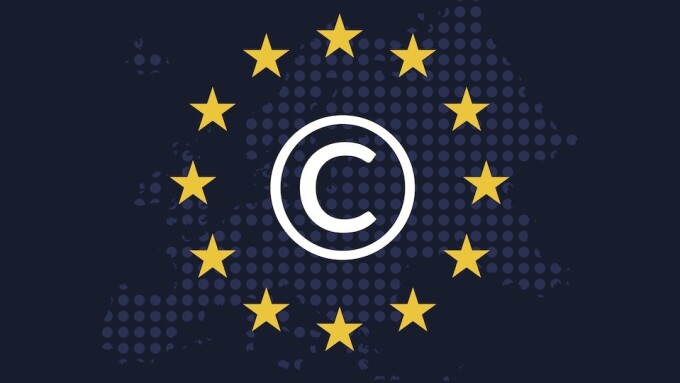BRUSSELS — The European Parliament has approved the controversial Copyright Directive today by a 348-274 vote, reports the European Digital Rights Initiative.
The Copyright Directive, which compels individual member nations to incorporate its articles into their local laws, includes two articles, 13 and 17, that were overwhelmingly criticized by digital rights advocates and many other internet experts as establishing what the EDRi calls a “Censorship Machine” over online freedom of expression and commerce.
The consequences of the Copyright Directive could be catastrophic for all "tube sites," critics have claimed. Mainstream tube site market leader YouTube has led the initiative against the European directive with a campaing and website called Save Your Internet.
Adult tube sites that follow the YouTube model would be similarly affected by the Directive, which puts the responsibility for reviewing and filtering allegedly copyrighted uploaded material on the sites.
“Today, on 26 March, the European Parliament voted in favor of adopting controversial upload filters (Article 13/17) as part of the copyright Directive,” wrote the EDRi. “This vote comes after what was an intense campaign for human rights activists, with millions of signatures, calls, tweets and emails from concerned individuals, as well as Europe-wide protests.”
“Despite the mobilization,” the EDRi continues, “348 Members of the European Parliament (MEPs) gave their support to the proposed text which includes concerning restriction to freedom of expression. Noticeably, 274 stood up with citizens and voted to reject upload filters. The proposal to open the text for amendments was rejected by five votes difference. The amendments proposing the deletion of Article 13 were not even subject to a vote.”
As Cory Doctorow of the Electronic Frontier Foundation wrote last month, the proposed text of the Copyright Directive the European MPs approved today established that "any online community, platform or service that has existed for three or more years, or is making €10,000,001/year or more, is responsible for ensuring that no user ever posts anything that infringes copyright, even momentarily."
According to Doctorow and a vocal majority of critics, achieving this is "impossible."
"The closest any service can come to it, wrote Doctorow, "is spending hundreds of millions of euros to develop automated copyright filters. Those filters will subject all communications of every European to interception and arbitrary censorship if a black-box algorithm decides their text, pictures, sounds or videos are a match for a known copyrighted work. They are a gift to fraudsters and criminals, to say nothing of censors, both government and private."
YouTube CEO Susan Wojcicki, an outspoken critic of the European Copyright Directive, explained the challenge to tube sites using the video for the popular pop song "Despacito" as an example.
“This video contains multiple copyrights, ranging from sound recording to publishing rights,” Wojcicki wrote in a blogpost last December. “Although YouTube has agreements with multiple entities to license and pay for the video, some of the rights holders remain unknown. That uncertainty means we might have to block videos like this to avoid liability under article 13. Multiply that risk with the scale of YouTube, where more than 400 hours of video are uploaded every minute, and the potential liabilities could be so large that no company could take on such a financial risk.”







